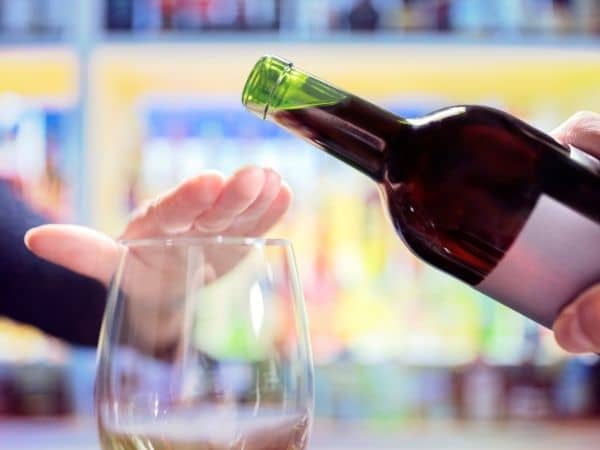If you’ve been heavily dependent on alcohol for a long time and then decided to quit abruptly, it’s very likely that you’ll be experiencing withdrawal symptoms. Depending on your age, weight, and drinking history, these withdrawal symptoms will vary from others. Even the level of severity will vary, too, from person to person.
Another question you may be wondering is how long does alcohol withdrawal last?
Apart from learning how to stop drinking alcohol, it is important for people looking to quit drinking to know how long alcohol withdrawal symptoms will last so they can better understand their journey to recovery. This article breaks down everything you need to know about alcohol withdrawal so you know what to expect once you take the all-important first step towards sobriety and healthy living.
Alcohol Addiction: Causes and Symptoms
Before we get down to how long alcohol withdrawal typically lasts, let’s first acquaint ourselves with what alcohol addiction is and how it affects the patient. Knowing its causes and its symptoms can give us a better understanding of the whole picture.
Alcohol addiction has been called plenty of terms, including alcoholism and alcohol dependence. The more clinical term, however, is alcohol use disorder (AUD). AUD happens when an individual consumes beyond the recommended amount of alcohol for a prolonged period. Eventually, their body becomes dependent on the substance.
Basically, the person abuses alcohol so much that it leads to chemical changes in their brain and affects how they live their lives.
Perhaps one of the reasons alcohol is so easy to abuse is that it blocks the signals between brain cells. It can effectively shut down that part of the brain that makes you want to put up inhibitions. That’s why some of the symptoms of intoxication that we can see are slurred speech, impulsive behavior, and slower reflexes.

The chemical changes that alcohol brings often give feelings of elation. Often, these feelings of elation and pleasure are what contribute to alcohol addiction. People will keep wanting to consume alcohol for the feeling it gives them, even though they know there are downsides to it.
Over time, as alcohol is continued to be abused, the brain attempts to stabilize and adapt to the blocked signals by increasing some of the brain chemicals responsible for giving signals. That’s why when alcoholics decide to abruptly stop drinking and even after the alcohol leaves the body, the brain continues to overcompensate with the brain chemicals. And that’s what causes the painful and life-threatening withdrawal symptoms.
Common Symptoms of Alcohol Use Disorder
If you believe you or a loved one has alcohol use disorder, watch out for common symptoms:
— Having a high tolerance for alcohol or not experiencing hangovers
— Depends on alcohol to get through the day
— Creating excuses to drink
— Not being able to put limits on the amount you consume
— Drinks at inappropriate times and places, like early in the morning and when at work
— Drinking to avoid withdrawal symptoms or experiencing them when not drinking
— Unable to quit drinking even when it’s obviously causing problems in your relationships
— Unwillingness to admit that they need help with their drinking problem
Alcohol Withdrawal Timeline: How Long Does Alcohol Withdrawal Last?
That mainly depends on several factors like age, weight, and drinking history. However, there is a general timeline as to what people may experience when they decide to stop drinking.
Alcohol withdrawal symptoms can sometimes be life-threatening, that’s why health care practitioners caution alcoholics from stopping suddenly from drinking. Even though the withdrawal symptoms you experience are mild, it’s still best to have constant medical attention when undergoing alcohol detox.
Between 2 to 6 Hours
Just after 2 to 6 hours after the last drink, individuals may begin experiencing mild withdrawal symptoms. Some of the symptoms may include nausea, slight tremors, and mild headaches.
Between 12 to 24 Hours
After 12 to 24 hours that alcoholics quit drinking, a small percentage of them may begin experiencing hallucinations at this point. The types of hallucinations may include visual, auditory, and tactile hallucinations.
Between 24 to 48 Hours
Minor withdrawal symptoms will continue at this point. Most of the symptoms patients will experience may include stomach upset, headache, and slight tremors. The symptoms of those who only experience minor withdrawal symptoms usually peak at 18 to 24 hours. Then the symptoms would start to subside after four or five days.
Between 48 to 72 Hours
Once alcoholics stop drinking, some of them may experience alcohol withdrawal delirium or delirium tremens (DTs). It’s a severe form of alcohol withdrawal where patients usually experience an increase in their heart rate, fever, and seizures.
After 72 Hours
Seventy-two hours after the last drink is usually when withdrawal symptoms are most severe. There are rare instances where moderate withdrawal symptoms are felt for a month.
Post-Acute Withdrawal Symptoms
Post-acute withdrawal symptom (PAWS) is the second stage of alcohol withdrawal. While the first stage mainly involves physical symptoms, PAWS involves emotional and psychological symptoms.

Some of the symptoms experienced by people during PAWS are disturbed sleep, anxiety, mood swings, irritability, lethargy, and a decrease in concentration. It happens because your brain is adjusting to the new situation where alcohol isn’t present anymore. The chemicals in your brain are slowly returning to equilibrium.
The answer to the question “how long does alcohol withdrawal last?” depends on the individual. Some may experience delirium tremens, while some may not. Some may recover after 1 to 3 days, while some may experience withdrawal symptoms that linger for months. But the timeline above is good in determining the general alcohol withdrawal timeline.
Final Thoughts
Apart from learning how to stop drinking alcohol, alcoholics also need to understand the withdrawal timeline. That way, they’re better prepared for what they’ll be experiencing during the first few days and months once they decide to quit. The early stages of recovery may be daunting and challenging, but the long-term benefits always outweigh the challenges.
If you or a loved one has an addiction to alcohol, help is not difficult to get. At Buena Vista Recovery, we’re all about helping you get back on your feet and living better days without depending on any addictive substance. We offer professional alcoholism recovery in Arizona with locations in Tucson, Scottsdale, and Chandler. Call us now at (800) 922-0095 to get started!






